

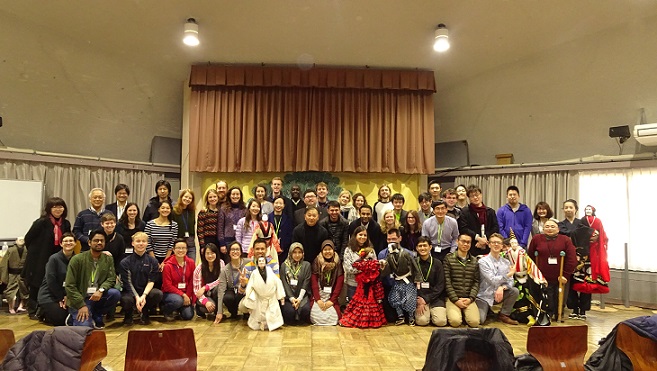
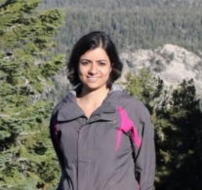 |
My experience at the Imperial-TokyoTech GlobalFellows Programme Spring 2018 In March 2018, I was given the opportunity to be part of The Imperial-Tokyo Tech Global Fellows Programme. In my 2-years of studying in Tokyo Tech, this was one of the bestopportunities of interacting with international researchers who have grown with completely different work and educational experiences. The program started off with coming together of 20 students each form Tokyo Tech and ICL. The following 6 days of the program were filled with lectures, workshops, and teambuildingand personality development activities which I vastly enjoyed (shout-out to Dr. Paul Seldon!). The activities focused on encouraging communication, understanding poverty, learningcorrect research ethics and brainstorming techniques, among others. The last two days solely focused on the theme of program “Innovation to Eradicate Poverty”. Brainstorming through the issue was the time when I realized importance of all theteambuilding we had been going through the previous days. Despite being from varied socio-economic backgrounds, which bought with it varied understanding of poverty, we were able tocommunicate our ideas amongst the four of us and were able to come to the same page in the end. Our team proposed the idea of ‘FoodDirect: Empowering farmers through the powerof technology’, which won us the ‘Winning Team Award’. With all the skill development activities, making new friends, learning to respecting and understand peoples’ views (however different from yours) and finally winning the award; the wholeexperience was more fulfilling than I had ever expected.  |
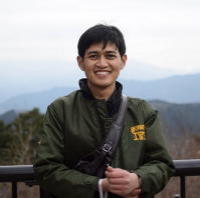 |
In March 2018 I had the opportunity to participate in Imperial -Tokyo Tech Global Fellows program with theme “Innovation to Eradicate Poverty”. The program was a 6-day camp inwhich doctoral students from both Imperial College London and Tokyo Tech involved in interdisciplinary research to tackle poverty. The aim of the program is to foster interdisciplinary collaboration among students from different disciplines. The program started with lectures from academics and practitioners aboutthe reality of poverty and what we can do about it. Research groups of four were formed in which each group comprised of two Imperial College students and two Tokyo Tech students.Team building activities also introduced which allowed group members to know each other better. During the course of the camp, each group was challenged to formulate a solution totackle poverty. We were involved in goal setting, feasibility analysis, and program design. In the last day, each group presented their proposed solutions and received feedbacks fromcoaches and judges. The program was an eye-opening experience. During the program, we were exposed to people from different backgrounds, cultures, and way of thinking. Unexpected developments alsohappened as ideas from different perspectives were popping up and combined. The exercise was exciting and fun. I believe that the interdisciplinary research experience will be beneficialfor me in the future collaboration with colleagues from diverse disciplines. |
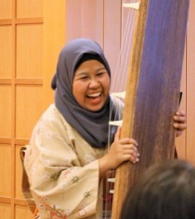 |
At first, I follow this event because I want to take a little break from my research routine. I am not expecting more. But I was wrong, I found that everyone is very nice, and I learnedhow to cooperate and as a bonus: a new friendship. There are lots of memories that unforgettable. But one of best memory I have is when we work together in a team to make a final presentation to give an idea of how to eradicatepoverty. Working in a group is fine, but some people, it might be harder than working individually. As a foreign student who studies in Japan for years, I get used to doing every step ofmy research by myself. In this fellow program, I learn to cooperate with my friends who have a totally different field. My team was consisting of a business student, biologists, while Iam an economist but focus on environmental, economic modeling. We need to share the task, communicate our ideas. Personally, I was struggling at first. However, everyone tried theirbest to cooperate and to understand between each other, also to make sure that everyone is involved. That hard-work paid, at the end of the session, our team won the 2nd best presenter. I think I can recommend you enough to follow thisprogram. Perhaps, just like me, you’ll learn something beyond your expectation. You’ll learn something that might useful for your future especially after you finish your graduate study. Good luck! |
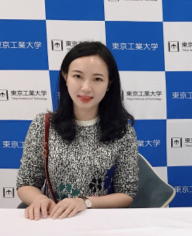 |
In March,2018, I spent amazing one week with the other 19 students from Tokyo Tech and 20 students from Imperial college. The whole experience was so much beyond my imaginationboth in the sense that I got refreshed from the amazing activities and had my research insights polished. Taking a break from heavy research routine, in that one week, I got a great roommate who is from Luxenberg, which made it possible for me to enjoy a lot of quality time havingconversations with her. In addition, I got to know a lot of other people in the group activities and networking activities as well. It was quite impressive for me that although we didn’tshare the same background, both in culture and research, we still had a lot of fun together. Those enjoyable moments will stay in my mind for a long time. As for the things that I learned, they are mainly in twofold, one is that I used to think it is common sense that qualified PhD candidates should be capable to complete researchesindependently. However, this is not always the case. Sometimes, successful teamwork can make the larger difference in comparison to individual work. The other one is that makingpresentations about my research to people who is not from my field really helped me to re-clarify and re-think my research and did inject fresh ideas from totally different perspectivesto my current research, which I think it is a brand-new method that I will try in my future research. |
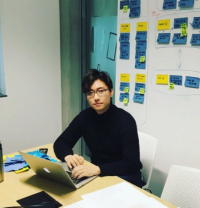 |
That was a collaborative workshop of 'Imperial Tokyo-Tech Global Fellows Program' in March 2018, I still remember vividly. I applied to the workshop mainly because of its interestingtheme-Innovation to Eradicate Poverty. As a researcher in IT management discipline, I have desired to make approach with IT to embrace all humankind and socially-weak groups ofpeople. I considered participating the workshop can be a good chance to extend my understanding and to attempt generating some ideas related to the theme. In the workshop, 40 students from Imperial College London and Tokyo Tech gathered to learn and to discuss idea about poverty issues. In the case of my team, we proposed health datamanagement platform called 'Data sponge' for assisting collection, analysis and management of medical data for epidemic prevention and medical resource arrangement to the contextof developing countries. Apart from the ideation work, there was inclusion of team-building games, banquet, cultural exchanges, city tour, which I could enjoy time with those friends fromUK. I feel I got change of thinking and gained a lot of experiences throughout the workshop. For example, during the process of ideation and presentation, I could see plenty of interestingperspective and novel suggestions that I have never thought about within my team and among different teams. And it was amazing to watch the process of developing idea fromprimitive idea level to complete solution level with professional knowledge by discussion of team members from different research fields. I could feel that this is why global researchcooperation and multidisciplinary research is important issue in terms of creating a considerable advance in whole body of knowledge in humankind. Plus, I personally would like to keepmy research friends gained from this program for a long term. |
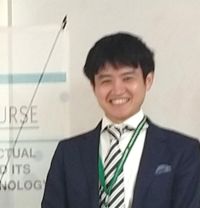 |
I would to get inspiration for my own research activities by communicating with students who advanced to a doctoral course with different cultures and curriculums. Since our ownresearch activities involve interdisciplinary approaches in a social scientific approach. I hope to be able to deepen emergent knowledge leading to future research activities bycommunicating students in the field majoring in other fields. In conducting many activities, there were many difficulties for me in communication with Imperial students who have different cultures and perspectives from their Japanese students. It is remembered that International students in Tokyo Tech who knew their country and also knew about Japan helped in many scenes. Especially, I am impressed by having myself setup at the place of the final presentation. Imperial students and Tokyo Tech students have a very positive mental for our this program's theme and want to make good proposals. In this program, I reaffirmed the necessity of liberal arts, for example, social tasks and my own research as well as the culture of my own country and the other ones to complete doctordegree. Through communication with students from various countries, it is necessary for us to develop attitudes to think from a global perspective in any field. It was a very goodopportunity to think about my future career plan. |